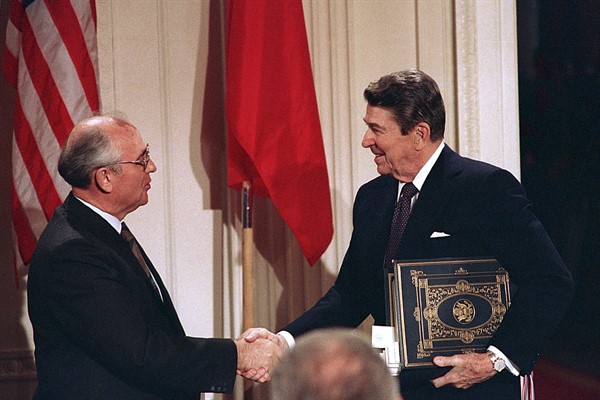The Cold War was bookended by two signal developments—one scientific and technical, the other political and diplomatic—that opened and seemingly closed a terrible parenthesis in the history of the 20th century, but also of humankind. The first was the invention of nuclear weapons. The second was the process by which the U.S. and Russia gradually but methodically rolled back the threat of nuclear war in Europe after the collapse of the Soviet Union.
When the U.S. reduced Hiroshima and then Nagasaki to rubble with just one atomic bomb apiece in the final days of World War II, military strategists and keen observers of global politics immediately understood that the atomic bomb had reordered the logic of warfare—and international relations. To begin with, it was apparent that the massive destructive power of “the bomb,” as it eventually became known, would make it the ultimate weapon, the possession of which would decisively determine the balance of power between states. A state, even one with a stronger conventional military than its adversary, could now forego war altogether and achieve its political aims simply by brandishing the threat of a nuclear attack.
But the counterpoint—that a nuclear-armed state could hold a stronger but non-nuclear enemy at bay—was lost on no one. For this very reason, it was also quickly understood that the United States would not maintain its monopoly on the ultimate weapon for long. At the same time, nuclear strategists didn’t take long to realize that the very destructiveness of nuclear weapons, which in subsequent decades only grew to perverse extremes, combined with the impossibility of parrying them made them unusable in the context of a conflict between two nuclear powers. Nuclear weapons represented an anomaly in the history of human conflict: a war that not only couldn’t be won, but that would necessarily be lost by both sides—and very likely the entire planet.

